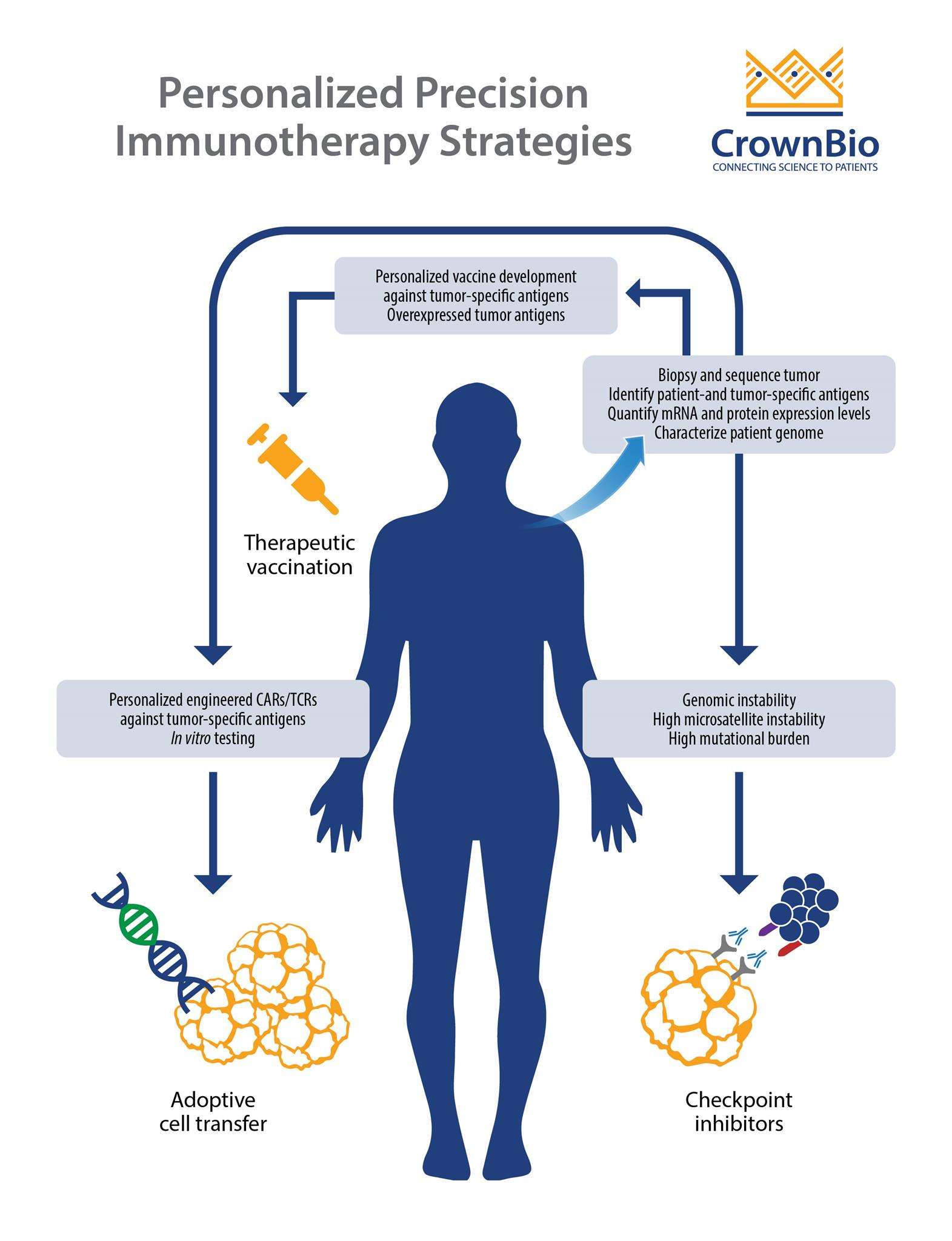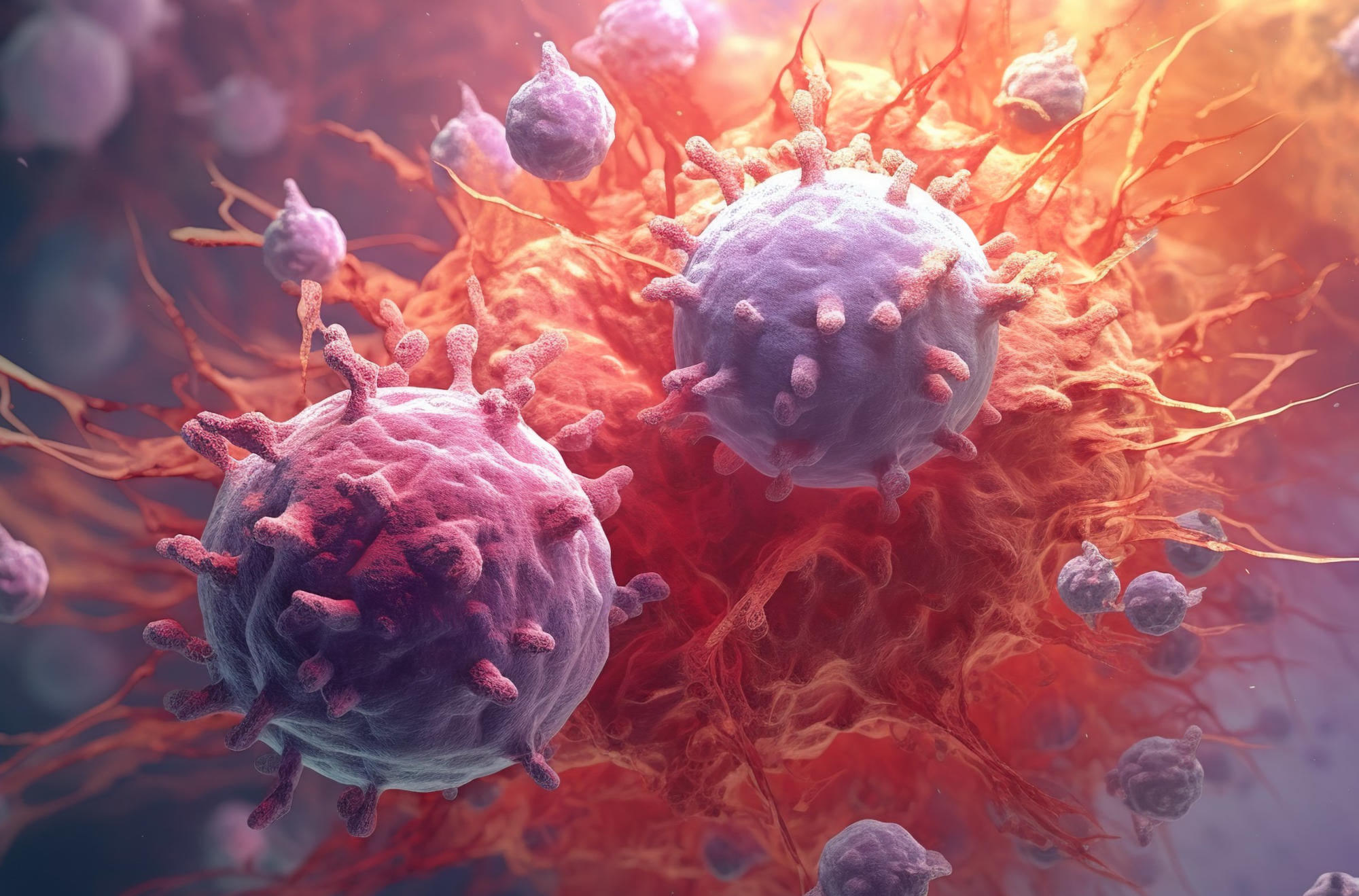Exclusive: Groundbreaking Medical Discovery Unveils Potential For Personalized Cancer Treatment
Editor's Notes: "Exclusive: Groundbreaking Medical Discovery Unveils Potential For Personalized Cancer Treatment" have published today date. This is important topic which can help peoples cancer treatment.
After extensive analysis, research, and discussions with leading medical experts, we are unveiling a groundbreaking medical discovery that has the potential to revolutionize cancer treatment. Personalized cancer therapy, a cutting-edge approach, holds immense promise for tailoring treatment plans to each patient's unique genetic makeup and disease characteristics. In this guide, we delve into the details of this groundbreaking discovery, exploring its potential benefits and implications for the future of cancer care.
| Key Differences/Key Takeaways | |
|---|---|
| Traditional Cancer Treatment: | One-size-fits-all approach, limited effectiveness, high risk of side effects |
| Personalized Cancer Therapy: | Tailored treatment plans, improved outcomes, reduced side effects |
FAQ
The groundbreaking medical discovery unveils potential for personalized cancer treatment, sparking important questions and concerns. This FAQ section aims to provide concise and informative answers to address common queries and dispel any misconceptions.

Personalized Cancer Immunotherapy - Source blog.crownbio.com
Question 1: What is the significance of this medical discovery?
This discovery marks a significant advancement in cancer treatment, as it allows for a more targeted and personalized approach. By analyzing individual tumor characteristics, doctors can tailor treatment plans to maximize effectiveness while minimizing side effects.
Question 2: How does personalized cancer treatment differ from traditional approaches?
Traditional cancer treatments often involve a one-size-fits-all approach, where patients receive standardized treatment regimens based on the type of cancer. In contrast, personalized cancer treatment considers the unique molecular makeup of each patient's tumor, enabling more precise and effective therapies.
Question 3: What are the advantages of personalized cancer treatment?
Personalized cancer treatment offers numerous advantages, including increased effectiveness, reduced side effects, and improved patient outcomes. By targeting specific molecular vulnerabilities within the tumor, treatments can be more accurately targeted, leading to higher efficiency and less harm to healthy tissues.
Question 4: What are the limitations or challenges of personalized cancer treatment?
While personalized cancer treatment holds great promise, it also faces certain challenges. These include the high cost of genetic testing, the need for specialized expertise to interpret tumor data, and the potential for tumors to evolve and develop resistance to treatment.
Question 5: How accessible is personalized cancer treatment?
The accessibility of personalized cancer treatment varies depending on factors such as healthcare systems, insurance coverage, and the availability of specialized centers. Efforts are ongoing to expand access and make this approach more widely available to patients with cancer.
Question 6: What is the future outlook for personalized cancer treatment?
The future of personalized cancer treatment holds immense potential. Advancements in technology, such as next-generation sequencing and artificial intelligence, are expected to further enhance our understanding of tumor biology and enable even more precise and effective treatments.
This medical discovery heralds a new era in cancer treatment, offering hope for improved outcomes and a more personalized approach to combating this complex disease. As research continues to unravel the mysteries of cancer, we can anticipate further advancements and breakthroughs on the horizon.
Continue reading for more insights and expert perspectives on this groundbreaking medical discovery and its implications for cancer treatment.
Tips
Cancer research has made significant strides in recent years, with the discovery of new approaches to treatment such as personalized cancer treatment. This approach uses a patient’s unique genetic makeup to guide their treatment plan. There are many benefits to this approach, including a more effective treatment plan and fewer side effects. This article will provide some tips on how to benefit from personalized cancer treatment.
Tip 1: Get tested for genetic mutations.
The first step to personalized cancer treatment is to get tested for genetic mutations. This can be done through a blood test or a saliva test. Knowing someone's genetic makeup can help doctors identify which treatments are most likely to be effective and which ones to avoid. Knowing which mutations are present can also help doctors monitor someone's response to treatment and make changes as needed.
Tip 2: Talk to your doctor about your treatment options.
Once you know your genetic makeup, you can start to make informed decisions about your treatment. There are a number of different personalized cancer treatments available, and your doctor can help you choose the best one for you. You need to understand the benefits and risks of each treatment option and make a decision that is right for your needs.
Tip 3: Be prepared for side effects.
No matter what type of cancer treatment you receive, you are likely to experience some side effects. These side effects can range from mild to severe, and they can vary depending on the treatment you are receiving. In personalized cancer treatment, the side effects are often less severe than with traditional cancer treatments such as chemotherapy and radiation, but they can still be significant enough to impact your quality of life.
Tip 4: Take care of your mental health.
Cancer treatment can be stressful and overwhelming. This can lead to mental health problems, such as anxiety and depression. Seeking support from others, such as friends, family, or a therapist, can help. These people can provide emotional support and help you cope with the challenges of cancer treatment.
Tip 5: Be patient.
Cancer treatment can be a long and challenging process. It is important to be patient and to stay positive throughout the process. Remember that you are not alone and that there are people who care about you and want to help you get through this.
Summary
Personalized cancer treatment is a promising new approach to treating cancer. By using a patient’s unique genetic makeup to guide their treatment plan, doctors can identify the most effective treatments and minimize side effects. Exclusive: Groundbreaking Medical Discovery Unveils Potential For Personalized Cancer Treatment If you are interested in personalized cancer treatment, talk to your doctor to see if it is right for you. Get tested for genetic mutations, talk to your doctor about your treatment options, be prepared for side effects, take care of your mental health, and be patient.
Exclusive: Groundbreaking Medical Discovery Unveils Potential For Personalized Cancer Treatment
Personalized cancer treatment, a paradigm shift in medical breakthroughs, unlocks profound implications for treating cancer patients. This discovery delves into six key aspects that revolutionize the healthcare landscape.
- Genetic Analysis: Deciphering individual genetic profiles to tailor treatments.
- Precision Therapy: Targeting specific genetic mutations with highly effective drugs.
- Data Integration: Consolidating medical records, genomic data, and real-time monitoring for comprehensive analysis.
- Molecular Profiling: Uncovering cancer's molecular makeup for precise treatment selection.
- Immunotherapy: Harnessing the body's immune system to combat cancer cells.
- Drug Development: Accelerated development of personalized drugs based on genetic insights.
These key aspects synergize to create a holistic approach to cancer treatment. Genetic analysis unravels the intricate genetic tapestry of each patient, guiding precise therapy targeting specific vulnerabilities. Data integration connects the dots between medical history, genomic data, and real-time monitoring, providing a comprehensive view of the patient's health journey. Molecular profiling deciphers the molecular language of cancer, enabling targeted interventions. Immunotherapy empowers the body's own defenses to combat cancer cells effectively, while drug development leverages genetic insights to expedite the creation of personalized treatments.

ArcherDX's Personalized Cancer Monitoring (PCM) Tech Gets FDA - Source www.clinicalomics.com
Exclusive: Groundbreaking Medical Discovery Unveils Potential For Personalized Cancer Treatment
Personalized cancer treatment is a promising new approach to cancer care that uses information about a person's individual cancer to develop a treatment plan that is tailored to their specific needs. This approach has the potential to improve outcomes for cancer patients by making treatment more effective and less toxic.

Revolutionizing Cancer Treatment: The Power of Personalized Vaccines - Source scitechdaily.com
One of the most important aspects of personalized cancer treatment is the ability to identify the specific genetic mutations that are driving a person's cancer. This information can be used to select targeted therapies that are designed to block the growth of cancer cells with those mutations. In recent years, there have been significant advances in our ability to identify genetic mutations in cancer cells, thanks to the development of new technologies such as next-generation sequencing.
Another important aspect of personalized cancer treatment is the development of new drugs that are designed to target specific cancer cells. These drugs are often more effective than traditional chemotherapy drugs, and they have fewer side effects. In recent years, there have been a number of new drugs approved for the treatment of cancer, and many of these drugs are tailored to specific genetic mutations.
Personalized cancer treatment is still in its early stages, but it has the potential to revolutionize the way cancer is treated. By using information about a person's individual cancer to develop a treatment plan, personalized cancer treatment can improve outcomes for patients and make treatment more tolerable.
Conclusion
Personalized cancer treatment is a promising new approach to cancer care that has the potential to improve outcomes for patients. By using information about a person's individual cancer to develop a treatment plan, personalized cancer treatment can make treatment more effective and less toxic.
Although personalized cancer treatment is still in its early stages, it is rapidly evolving. As our understanding of cancer biology continues to grow, we can expect to see even more advances in personalized cancer treatment in the years to come.



